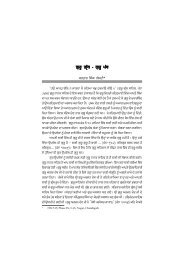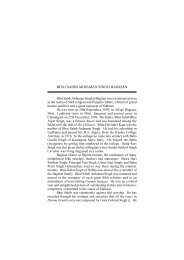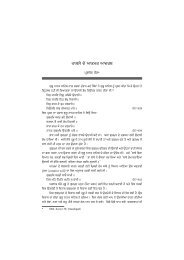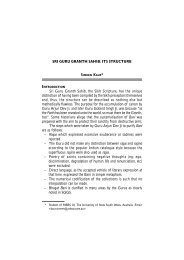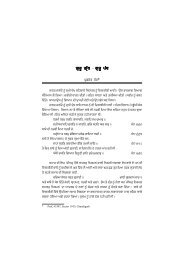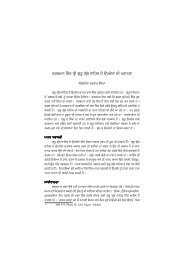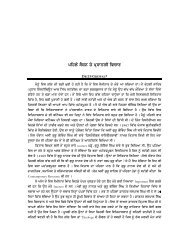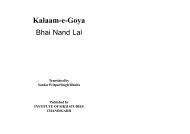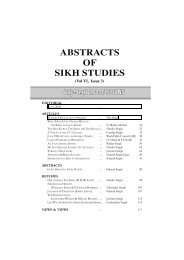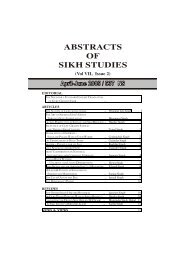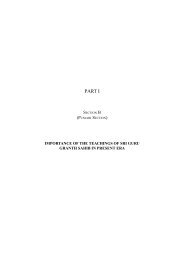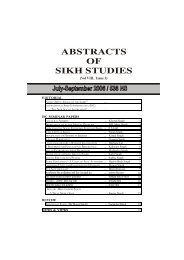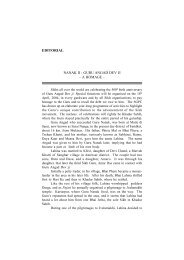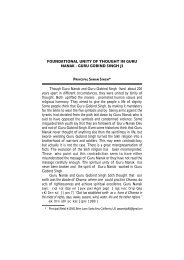Create successful ePaper yourself
Turn your PDF publications into a flip-book with our unique Google optimized e-Paper software.
58ABSTRACTS OF SIKH STUDIES : JAN-MARCH <strong>2006</strong> / 537-38 NSto exercise its statutory power under the Act, thus making it redundant.The interesting point is that the Muslims, Christians, <strong>Sikh</strong>s, Buddhistsand even the Parsis (a miniscule community with less than 0.1 millionpopulation) had been notified by the Central Government under theprovision <strong>of</strong> the same Act, but the guillotine has fallen on the Jains. Thus,refusal is a clear discrimination against the Jain community.The Constitution, in Explanation to Article 25, recognises theexistence <strong>of</strong> the Jain religion, but brackets it with Buddhism and<strong>Sikh</strong>ism for the limited purposes <strong>of</strong> one section <strong>of</strong> the Article dealingwith a common social aspect. Only five days after the promulgation<strong>of</strong> the Constitution, the then Prime Minister Jawarharlal Nehru, throughthe letter <strong>of</strong> June 31, 1950, signed by his Principal Private Secretary,had assured a Jain deputation that the Jains are a district religiousminority and there was no reason for apprehending that they would beconsidered as Hindus. Thus the judgement is constitutionally unsoundand violates an explicit assurance <strong>of</strong> the executive. The appellantshave decided to seek a review <strong>of</strong> it.Having summarily disposed <strong>of</strong> the Jain demand, the judgementdevotes another 12 pages to what can only be called obiter dicta or thepersonal views <strong>of</strong> Mr Justice Dharmadhikari. He gives his version <strong>of</strong>the history <strong>of</strong> the freedom movement, in particular, the effort forresolving the communal problem in terms <strong>of</strong> the constitutionalsafeguards as demanded by the Muslim community and conceded instages by the imperial power.Finally, there was no communal settlement culminating in thePartition <strong>of</strong> 1947. His historiography is full <strong>of</strong> flaws; it confuses thesequence <strong>of</strong> events; it describes India Wins Freedom as the “personaldiary” <strong>of</strong> Maulana Azad and attributes to him the role <strong>of</strong> a “mediator”between Nehru and Patel, on the one side, and Jinnah and Liaqat AliKhan, on the other.In effect, the obiter dicta reduced the complex course <strong>of</strong>negotiations between the Congress and the Muslim League, over 20years, in which Rajendra Prasad, Nehru, Subhash Bose and Gandhijiall participated (it is doubtful if Azad was directly involved at anystage) for finding a mutually-acceptable settlement to a one-shot event!Eminent jurist H M Seervai is quoted to place the responsibilityfor Partition on Gandhi, Nehru and Patel for having destroyed the



